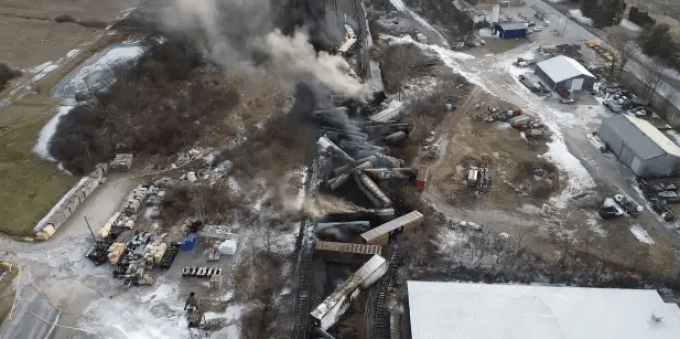US shippers indicate scant hope for rail carriers to regain business
In July the US Surface Transportation Board (STB) took the unusual step of summoning the ...

The Norfolk Southern train crash in East Palestine, Ohio on 3 February may have derailed the Class I railways’ efforts to reduce crews – amid more likely fallout from the incident.
The catastrophe, in which 38 rail cars derailed, including 11 carrying hazardous materials, turned into ...
Predatory rivals circle as the ripples from DSV's Schenker buy widen
MSC Elsa crew face criminal probe, as Wan Hai 503 firefighters battle on
Latest Israeli attack on Iran a threat to box ships in Straits of Hormuz
DHL Express facilities in Canada forced to shut down by strike
Industry concerns rise after yet another box ship on fire off Indian coast
More legal trouble in India for MSC: feeder vessel detained after box ship disasters
New Middle East conflict brings airspace closures, flight chaos and oil price worry
BYD launches logistics subsidiary – and eyes ports and shipping sectors
MSC to hold 15% global container terminal market share after Hutch buy
EXCLUSIVE: The good old DSV, 'Winning as One' – all Schenker top dogs out (Part 2)
DHL makes €500m bid to increase its presence in 'fast-growing Gulf markets'

Comment on this article